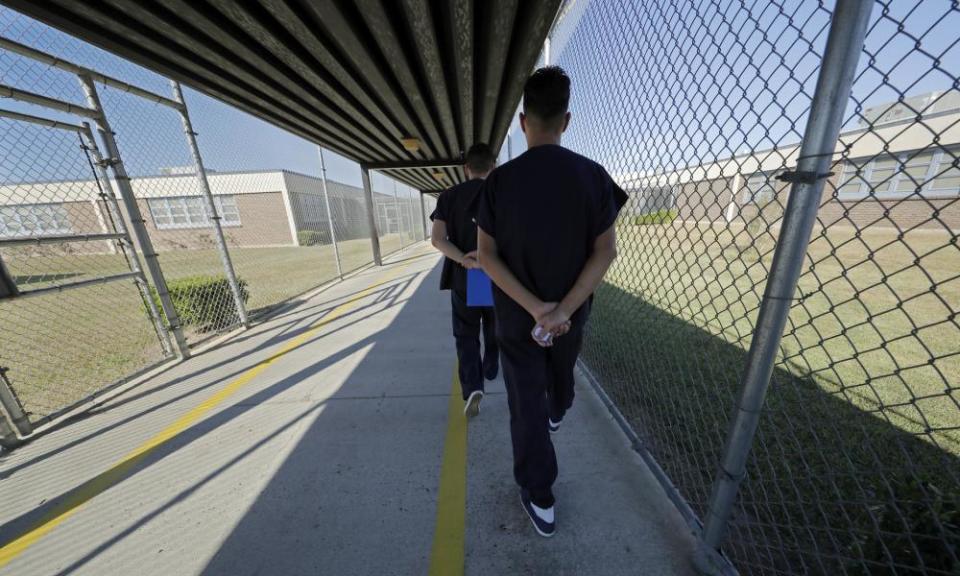New US measures threaten civil rights amid coronavirus pandemic

As the US continues its scrambling response to the coronavirus outbreak, it has closed borders, quarantined some neighborhoods, and shut down businesses in a number of the most populous states.
Behind the scenes, federal and state governments have also been pushing for a series of draconian measures to respond to the virus, which would disproportionately affect asylum seekers, people embroiled in the justice system and even those seeking an abortion.
The efforts have already had a striking impact on civil liberties, and bear hints of a 2020 version of the US government response to the 9/11 attacks in 2001, which ultimately led to the Patriot Act, a sweeping piece of legislation that allowed, among other things, the government to collect citizens’ phone data, in an unprecedented encroachment on personal rights.
Amid the indisputable need to contain the coronavirus outbreak, many of the measures have civil rights advocates concerned. With the Trump administration’s poor record on openness and on freedom – seen especially in its treatment of undocumented workers – there is a real risk of Covid-19 having a permanent impact on society.
Related: 'I have a broken heart': Trump policy has immigrants backing away from healthcare amid crisis
One of the most troubling efforts is a government proposal that would allow it to detain people indefinitely without trial during national emergencies. The justice department sent a request for the move to Congress around 20 March, in response to the coronavirus outbreak.
Politico viewed justice department documents sent to Congress detailing the measure which would allow the justice department to ask federal chief judges to detain citizens without trial. One document would mean the attorney general – currently the controversial Trump supporting Bill Barr – could ask judges in a district court to pause court proceedings “whenever the district court is fully or partially closed by virtue of any natural disaster, civil disobedience, or other emergency situation”.
Norman L Reimer, executive director of the National Association of Criminal Defense Lawyers, told Politico that the proposal would affect “pre-arrest” cases.
“So that means you could be arrested and never brought before a judge until they decide that the emergency or the civil disobedience is over,” Reimer said. “I find it absolutely terrifying. Especially in a time of emergency, we should be very careful about granting new powers to the government.”
The request is even more troubling given Trump’s willingness to use national emergencies for political motives. In February 2019 Trump declared a national emergency in an attempt to force through money to construct his border wall.
With the House currently dominated by Democrats, the measure is unlikely to be approved, although the election in November could change the dynamic, especially as Trump has risen in popularity in recent polls.
Other proposals hit asylum seekers and undocumented immigrants hardest. The justice department recommended Congress enact measures which would mean people with confirmed cases of Covid-19 not be allowed to apply for asylum, ABC News reported. The department is also seeking to deport undocumented immigrants who are confirmed to have the virus. The department’s proposal would send those immigrants back to their home countries, regardless of whether they are unsafe.
While those rules depend on congressional support, other measures are already being enacted which impede individual rights.
Dozens of courts across the US have already been closed due to the coronavirus, and the inherent difficulty of selecting a jury at a time when many Americans are being told to social-distance means further delays are inevitable.
Elsewhere, Texas and Ohio have banned almost all abortions in response to the coronavirus, a move it claimed followed federal guidance, but one which fits neatly with their previous efforts to restrict access to abortion. Under the Texas order any medical worker providing an abortion can be fined $1,000, claiming abortions fit within federal government guidelines which prohibit non-essential surgery.
In response to the order, Planned Parenthood and others filed an emergency lawsuit on Wednesday, Buzzfeed reported, stating the move is unconstitutional. Nancy Northup, head of the Center for Reproductive Rights, accused Texas’s attorney general, Ken Paxton, of “exploiting this pandemic to end abortion in the state”.
Some of the most vulnerable are those detained by US Immigrations and Customs Enforcement. As cities have released some low-level offenders from jail, Ice has remained resolute in refusing to release undocumented people from its detention centers. With social distancing almost impossible in detention centers, lawyers and advocates fear the consequences could be severe.
Last Wednesday Ice confirmed it had pepper-sprayed detainees during a briefing on the coronavirus at a center in Louisiana, alleging they had become confrontational. Ice told CBS News pepper spray had also been used on detainees at two other centers, following protests where undocumented people asked to be released.

 Yahoo News
Yahoo News 